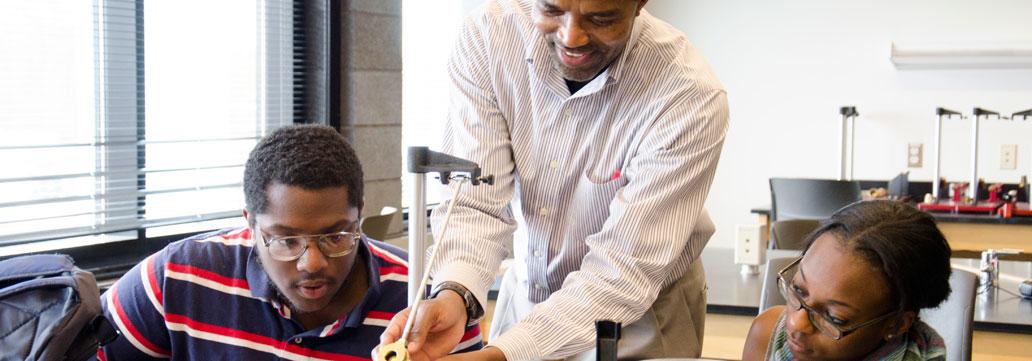
Physics (BS, BA, minor)
Program Goals
Physics is a discipline which lies at the heart of modern science, engineering and technology, while exerting considerable influence on philosophical and psychological thought. A core group of subjects at the appropriate level provides a solid foundation in the fundamental laws of nature and in the most useful mathematical techniques. These are the basic tools of all of the natural sciences. Completion of a bachelor’s degree as a Physics Major prepares the student for graduate work in physics, for further study in other fields (astrophysics, biophysics, chemical physics, oceanography, law, engineering and environmental sciences, geophysics or medicine), or for employment in government and industry.
The Physics Major at Lincoln is supported by highly qualified faculty and modern, well equipped facilities, including introductory and advanced laboratories, a computer laboratory, and an astronomical observatory. The faculty is dedicated to the use of the best traditional and innovative programs to assist the student in achieving his or her career goals.
The course offerings in physics are designed to:
- provide general insight into the nature and history of the science of physics for the general student;
- give a thorough background in general physics for the science major, whatever his or her specialty; and
- prepare the Physics Major with a firm, effective foundation for professional advancement, graduate study and a successful career as a research scientist.
Outcomes
- The student will be able to interpret and explain concepts of Physics covered in class.
- The student will be able to solve complex problems utilizing critical thinking skills.
- The student will demonstrate proficiency in the collection and analysis of data in simulations or the laboratory.
- The student will be proficient in reading and critically understanding scientific papers and will be able to write lab reports and scientific papers according to style of the American Physical Society.
- The student will be able to design and formulate experiments to test or challenge hypotheses presented in the laboratory.
- The student will be proficient in the implementation of standard laboratory techniques and will be aware of, and practice all safety procedures while working in the lab.
Requirements
Please see the University Catalog for more information and program requirements.
Contact
For more information contact the Chemistry & Physics Department.